Dear Mom,
Congratulations on the birth of your baby! Healthy families choose WIC – it’s a choice to be proud of, and we are excited you are here.
As a new mom with WIC, you can:
- Find healthcare and other services
- Learn to make smart food choices
- Learn ways to keep your baby safe
- Get support with breastfeeding
- Buy healthy foods
Sincerely,
Your WIC staff
GET THE CARE YOU NEED
- Vaccines keep you safe from viruses and diseases like COVID-19, measles, polio, and tetanus.
- Babies will get most of their vaccines by their 2nd birthday. Some vaccines are needed after that.
- Ask your healthcare provider what vaccines you and your baby need.
- It is important to keep up to date on your baby's vaccines.
- Keep a vaccine record for you and your baby. Bring the record with you to all appointments.

Choose Healthy Foods
Eat regular meals and choose a variety of whole grains, vegetables, fruits, dairy, and protein foods.
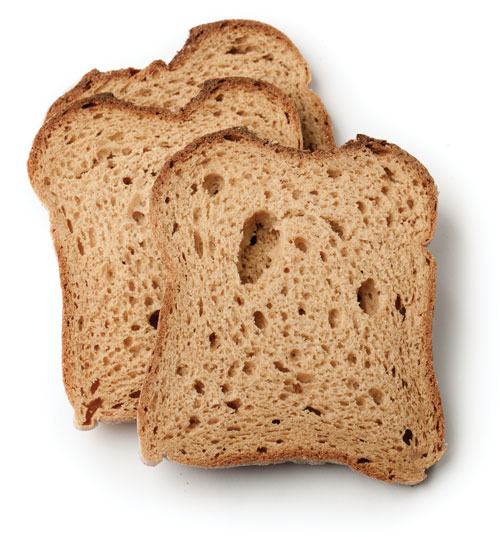
Breastfeeding:
Non-Breastfeeding:
1 Serving = 1 Ounce
Examples:
- 1 slice bread or tortilla
- ½ bagel or hamburger bun
- ½ cup cooked rice, noodles, or cereal
- 1 cup flake-type cereal
Tips:
- Eat whole grains like: oatmeal, whole wheat bread or rolls, brown rice, whole wheat pasta, tortillas (whole wheat or corn)

Breastfeeding:
Non-Breastfeeding:
1 Serving = ½ Cup
Examples:
- 1 cup raw or cooked vegetables
- 1 cup lettuce or other leafy greens
- ½ cup vegetable or tomato juice
Tips:
- Eat many kinds and colors: dark green, orange, red, yellow, purple, and white
- Add to: scrambled eggs, rice, noodles, salads, and casseroles

Breastfeeding and Non-Breastfeeding:
1 Serving = ½ Cup
Examples:
- ½ cup chopped or cooked fruits
- 1 fruit – apple, orange, peach, etc.
- ½ cup 100% fruit juice
- ¼ cup dried fruit
Tips:
- Eat many kinds and colors: red, yellow, orange, blue, green, purple, and white
- Put sliced or chopped fruit on cereal, pancakes, pudding, and frozen yogurt
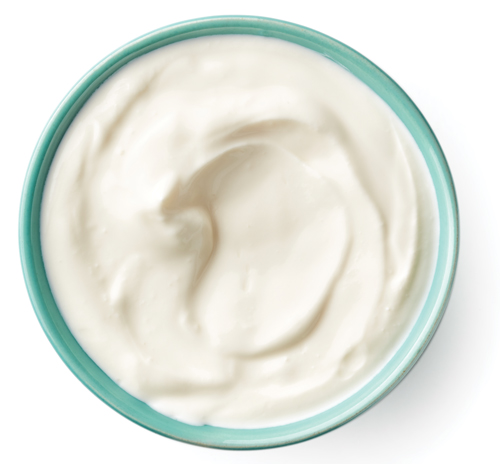
Breastfeeding and Non-Breastfeeding:
1 Serving = 1 Cup
Examples:
- 1 cup milk
- 1 cup yogurt
- 3 slices (2 ounces) American (processed) cheese
- 1½ ounces cheddar or similar cheese
- ⅓ cup shredded cheese
- 2 cup cottage cheese
- 1 cup soymilk
Tips:
- Choose low-fat or non-fat milk
- A 1½ ounce serving of cheese is the size of 3-4 dice-sized cubes
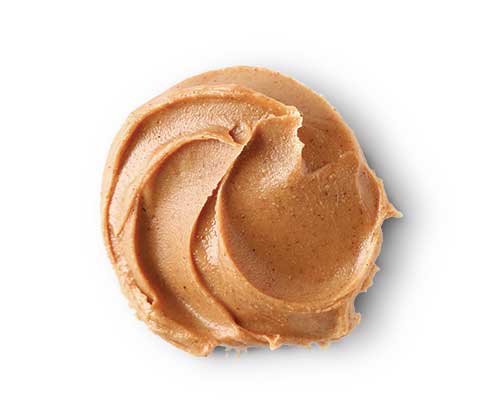
Breastfeeding:
Non-Breastfeeding:
1 Serving = 1 Ounce
Examples:
- 1 ounce meat, chicken, turkey, or fish
- ¼ cup canned light tuna
- 1 egg
- ¼ cup cooked beans or tofu
- 1 tablespoon peanut butter
Tips:
- A 3-ounce serving is the size of a deck of cards
- Choose lean meats – bake, broil, or grill them
- Beans are a great source of protein
Eat Breakfast, Lunch, and Dinner
You and your baby do best when you eat regular meals and snacks. Here is a sample menu using some foods you can purchase with your WIC benefits.
Get your body in shape with WIC foods. They give you:
- for healthy blood
- for strong bones and teeth
- for healing
- for body repair
Here are some examples of what meal and snack portion sizes might look like on your plate.
Breakfast

Lunch
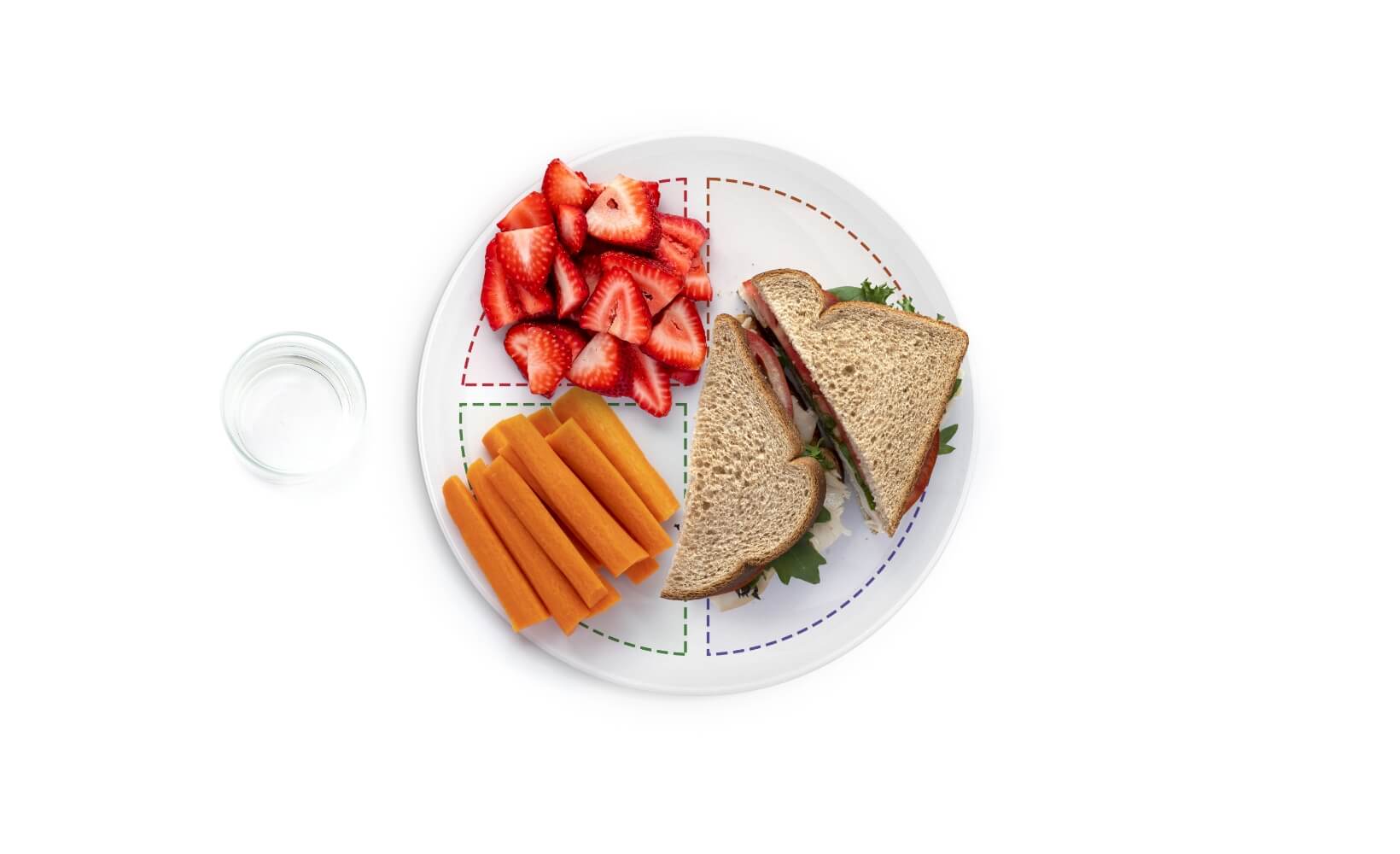
Snacks

Dinner

Breakfast Ideas
Make time for breakfast. It helps you get through the day. Here are a few ideas. Choose one or more foods from each group below.
Example: Whole Wheat Tortilla + Apple Slices + Peanut Butter
BREAD, CEREAL, OR OTHER GRAINS
- Bagel
- Cereal
-
Whole wheat or corn tortilla
- Crackers
- English muffin
- Oatmeal or grits
- Raisin bread
- Whole grain bread
- Granola or trail mix
- Whole grain waffle
FRUIT OR VEGETABLE
- Applesauce
- Green peppers
- Tomato
- Avocado
-
Apple
- Banana
- Melon
- Orange
- Peach
- Pineapple
- Raisins
- Strawberries
DAIRY OR PROTEIN
- Low-fat milk
- Low-fat cheese
- Low-fat yogurt
- Egg, cooked
- Nuts (like walnuts)
-
Peanut butter or nut butter
- Hummus
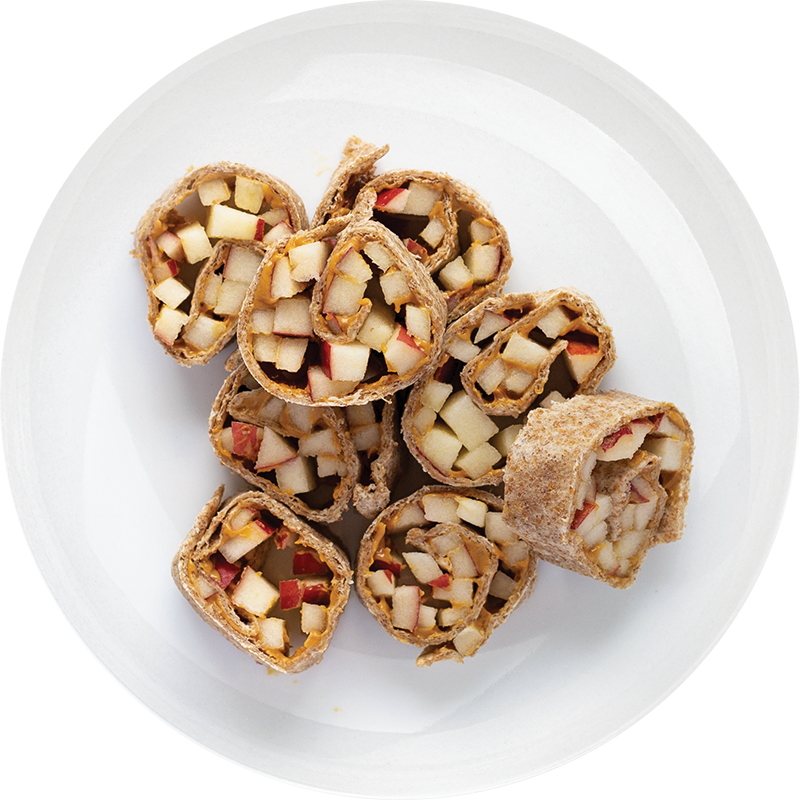

BE SMART ABOUT FAST FOODS
- Grilled chicken sandwich
- Turkey and avocado sub
- Hamburger or cheeseburger
- Pizza topped with green peppers, tomatoes, and mushrooms
- Baked potato with vegetable and cheese toppings
- Bean burrito
- Fruit
- Water, low-fat milk, or 100% juice
- Fruit and yogurt parfait
Get Folic Acid Every Day
Folic acid is a vitamin that every cell in your body needs. This vitamin might protect you from a heart attack, stroke, and cancer. If you become pregnant again, it protects your unborn baby from birth defects in their spine and brain which develop very early in pregnancy. It is recommended to get at least 400 micrograms (mcg) every day.
- Take a vitamin that has 400 mcg folic acid in it every day.
- Eat a bowl of breakfast cereal that has 100% of the daily value of folic acid every day.
- Add some cantaloupe, oranges, or strawberries to your breakfast.
- Choose darker green lettuce and greens, like romaine, green leaf, or raw spinach for salads or sandwiches.
- Have peanuts or peanut butter for a snack.
- Mix up a great tasting dip and use cut up raw veggies, like broccoli and cauliflower or use cherry tomatoes and mini carrots for dipping.
After childbirth, your body’s iron level may be low. This can make you feel weak and tired. Your healthcare provider may recommend a vitamin with iron or to continue taking your prenatal vitamin.
TRY TO EAT MORE OF THESE IRON-RICH FOODS:
- Iron-fortified breakfast cereal
- Cooked dried beans like white beans, lentils, garbanzo beans, or pinto beans
- Lean red meat
- Tofu
- Eggs
- Greens like spinach, collard greens, and mustard greens
- Potato with skin
- Prune juice
- Whole grain bread
Combine iron rich foods with foods high in Vitamin C. Eating these together helps your body absorb more iron from the food you eat.
- Orange juice
- Grapefruit
- Baked potatoes
- Tomatoes
- Peppers
- Broccoli
Small Changes and Healthy Choices Add Up To A Healthier You!
Small changes can make a big difference in helping you feel good, have more energy and lose weight. There are many tips that moms have shared that worked for them.
- Don’t eat food directly from the package – Portion out foods, like crackers, nuts, trail mix, pretzels, cheese cubes, etc., into individual containers or zip-top bags. Better yet, put vegetables in a container for quick healthy snacks without all the calories.
- Make vegetables a part of every meal - Start a family meal with a bowl of vegetables or salad placed at the center of the table and eat plenty. Serve the main dish in the kitchen. Use the MyPlate guide to fix your plate at www.myplate.gov.
- Stop eating when you feel full – Remind yourself that it’s okay to stop eating before your plate is empty or before everyone is done eating.
- Watch your portions – Use smaller plates. Studies show we eat more when we use bigger plates.
- Cut back on some foods – Cut calories by cutting out foods high in fats and added sugar. Decide to choose sweet drinks, cookies, cakes, candies, and ice cream as occasional treats. Limit meats, like ribs, bacon, hot dogs, and luncheon meats.
- Cook at home – Try healthier recipes that use less fat, sugar, and salt.
- Drink water – Sometimes we may feel hungry when we are thirsty. Keep water with you throughout the day. Sipping water can help fill you up so you don’t eat as much.
- Eating healthy is only one part of feeling great and having more energy – Being active helps too. Staying active helps new moms relieve stress – and having a new baby can be stressful! Ask your doctor when it’s okay to exercise and then start out slow.
BE ACTIVE WHENEVER YOU CAN
Your body stays fit when you move it. If your healthcare provider says it’s okay, stay active. Walking, stretching, and swimming are a few good ways.
- Help you look and feel great
- Give you more energy
- Lower stress and help you relax
- Work off your pregnancy weight
- Tone your muscles
Take it easy, at first. Your body needs to heal. Ask your healthcare provider what you can do and when you can do it.
Start with a 5 or 10 minute walk. After one week, walk a little longer or farther. Set a goal that works for you.
You can also find other fun and free workout programs/videos online.
What food can you cut back on?
Example:
Cut back to one soda a day.
What food can
you change?
Example:
Eat low-fat yogurt with fruit for breakfast.
What can you do to be more active?
Example:
Take the stairs, not the elevator.
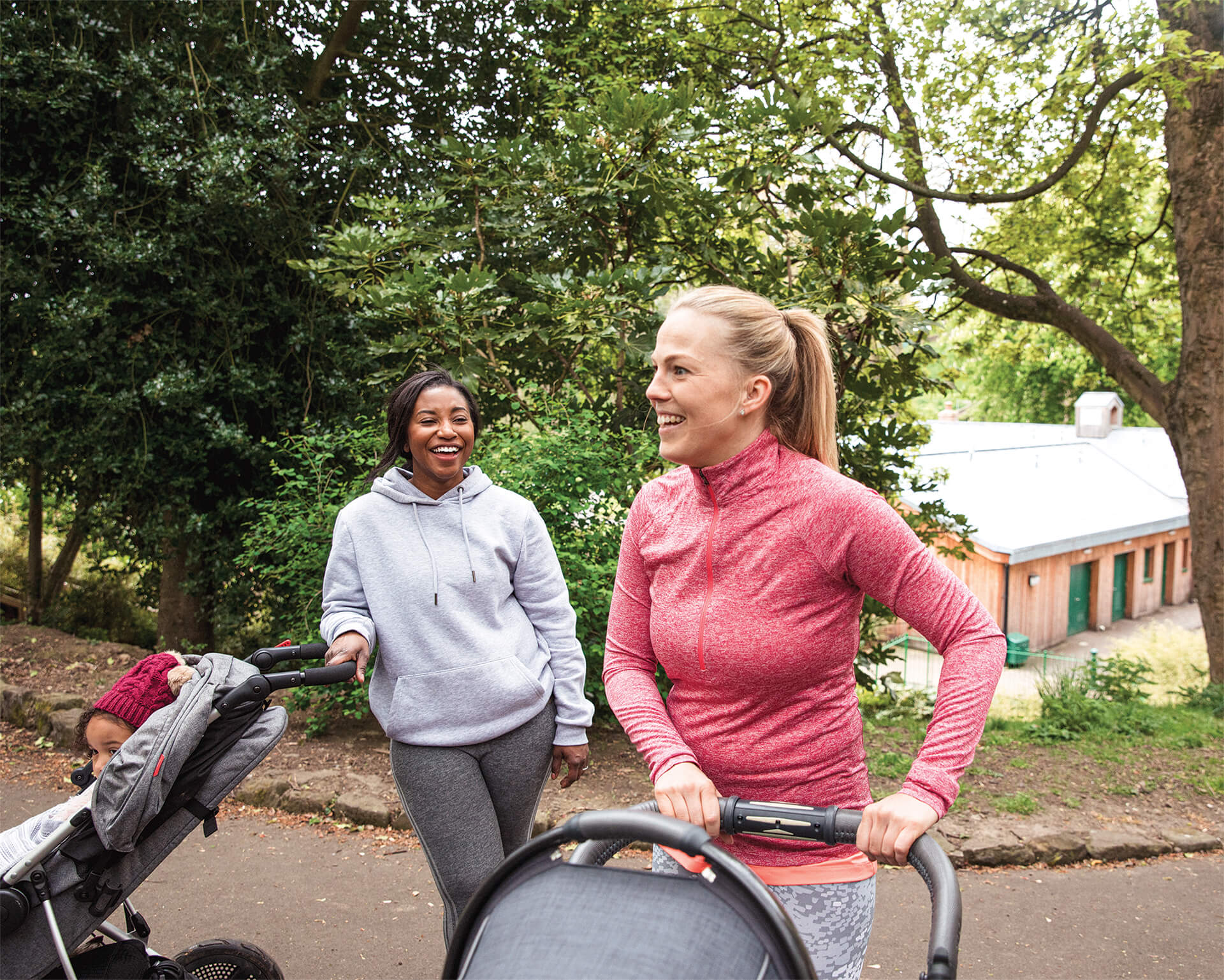
BE ACTIVE WHENEVER YOU CAN
Your body stays fit when you move it. If your healthcare provider says it’s okay, stay active. Walking, stretching, and swimming are a few good ways.
- Help you look and feel great
- Give you more energy
- Lower stress and help you relax
- Work off your pregnancy weight
- Tone your muscles
Take it easy, at first. Your body needs to heal. Ask your healthcare provider what you can do and when you can do it.
Start with a 5 or 10 minute walk. After one week, walk a little longer or farther. Set a goal that works for you.
- March in place when you watch TV or talk on the phone
- Play music and dance
- Ask your friends and family to join you
Change health habits one at a time.
Get used to one change before you make the next one.What food can you cut back on?
Example:
Cut back to one soda a day.
What food can
you change?
Example:
Eat low-fat yogurt with fruit for breakfast.
What can you do to be more active?
Example:
Take the stairs, not the elevator.
MAKE TIME FOR YOURSELF
- Ask for help from family and friends. Let them shop, cook, and clean.
- Nap when your baby naps. If you can’t sleep, lie down and rest.
- Find someone to talk to.
- Have more energy
- Think clearly
- Heal better
KEEP YOUR SMILE HEALTHY
- Brush your teeth (and tongue) at least 2 times a day.
- Floss your teeth every day.
- Drink water, not sugar-sweetened drinks.
- Get a dental checkup every 6 months.
Postpartum Depression
Most new moms get the Blues. They cry, feel sad, and have mood swings. This can last up to 2 weeks. If the feelings continue and get worse, you could have Postpartum Depression.
If you think you might have Postpartum Depression, talk with your healthcare provider to get help. You deserve to feel well.
If you have thoughts of harming yourself or your baby, get help right away.
Any of these feelings that last more than 2 weeks:
- Feeling very sad
- Crying often
- Don’t want to eat or can’t stop eating
- Can’t sleep or want to sleep all the time
- Don’t want to take care of yourself
- Don’t enjoy life
- Don’t care about your baby
- Feel like you could hurt yourself or your baby
- Afraid to be alone with your baby
- Worrying too much about your baby
- Sit in a chair.
- Put your hands on your stomach.
- Breathe in through your nose as you slowly count to 4. Hold for one second.
- Breathe out through your mouth as you slowly count to 4. Repeat 5 to 10 times.
Understanding Your Baby’s Cues
“I’M HUNGRY”

- Keep their hands near their mouth
- Bend their arms and legs
- Make sucking noises
- Pucker their lips
- Search for the nipple (roots)
“I’M Full”

- Suck slower or stop sucking
- Relax their hands and arms
- Turn away from the nipple
- Push away
- Fall asleep
“I WANT TO BE NEAR YOU”

As your newborn gets older, you will be better able to tell when they are ready to interact, learn, or play.
- Have a relaxed face and body
- Follow your voice and face
- Reach toward you
- Stare at your face
- Raise their head
“I NEED A BREAK”

As you get to know your baby, you will begin to learn what they are trying to tell you. This takes time.
- Look away, turn away, or arch their back
- Frown or have a glazed look in their eyes
- Stiffen their hands, arms, or legs
- Yawn or fall asleep
Give Your Baby the Best Start – Breastfeed!
Breastfeeding is natural, but may take time and practice. You and your baby are learning in the first 3 weeks. It gets easier after that.
Get your rest. You will have more energy for your baby.
Drink water, milk, and 100% juice when you are thirsty. Have a beverage ready to drink while you breastfeed.
- Cheese and crackers
- Fruit
- Low-fat yogurt
- Nuts and raisins
- Cereal
- Sandwich
- Cheese
- Yogurt
- Orange juice with calcium
- Tofu (made with calcium)
- Kale and collard greens
- Other foods fortified with calcium
Babies who are breastfed:
- Have fewer allergies
- Get sick less often
- Have less diarrhea and constipation
- Have a reduced risk of crib death (SIDS)
Moms who breastfeed:
- Spend less money on food for baby
- Get back into shape faster
- Have a decreased risk of certain cancers and type 2 diabetes
Whether you choose to feed your baby breast milk or formula, your baby counts on you to help them do well eating. For information on paced bottle feeding, visit the 0-6 month feeding guide.
- Mixing formula is just like following a recipe; mixing ingredients correctly is important. Your baby needs you to follow mixing directions on the can. Remember to always add water to the bottle first and then formula.
- If others care for your baby, be sure they know how to correctly mix and prepare the formula.
- Throw away formula left in the bottle after a feeding. If you prepare bottles ahead, store them in a refrigerator until you are ready to feed your baby. Prepare just enough bottles for 24 hours.
- Formula heated in a microwave can burn your baby’s mouth. Warm the bottle in hot water. The bottle should feel lukewarm – not hot.
- Your baby only needs formula in the bottle; never put sweetened drinks or water in your baby’s bottle.
Staying Safe
Keep you and your baby healthy by avoiding tobacco or nicotine products, alcohol, marijuana, and other drugs. If you are planning another pregnancy, we can help you with resources to stop or reduce use of tobacco, nicotine, alcohol, or drugs.
Smoking or using tobacco or nicotine products can impact your health. Smoke or vapor from cigarettes or vape pens can impact others around you. Smoking around babies or children can increase their risk for colds, ear infections, Sudden Infant Death Syndrome (SIDS), or asthma.
Consider a no smoking rule for your home and vehicles. Ask people to not smoke around you and your baby.
We know how difficult it is to quit or reduce tobacco or nicotine products. If you are struggling to quit or reduce your use, we have resources for you. Visit www.quitnow.net for support with quitting tobacco or nicotine use including free coaching, a free quit plan, and educational materials.
Avoiding alcohol, marijuana, and other drugs is recommended to keep you and your baby or older children healthy and safe. We have resources to support your efforts to stop or reduce your use.
For support with quitting alcohol, marijuana, or other illegal drug use, contact your healthcare provider or visit www.findtreatment.gov.